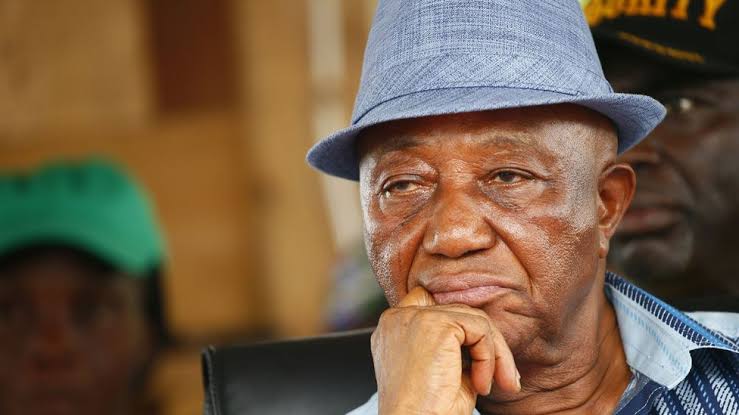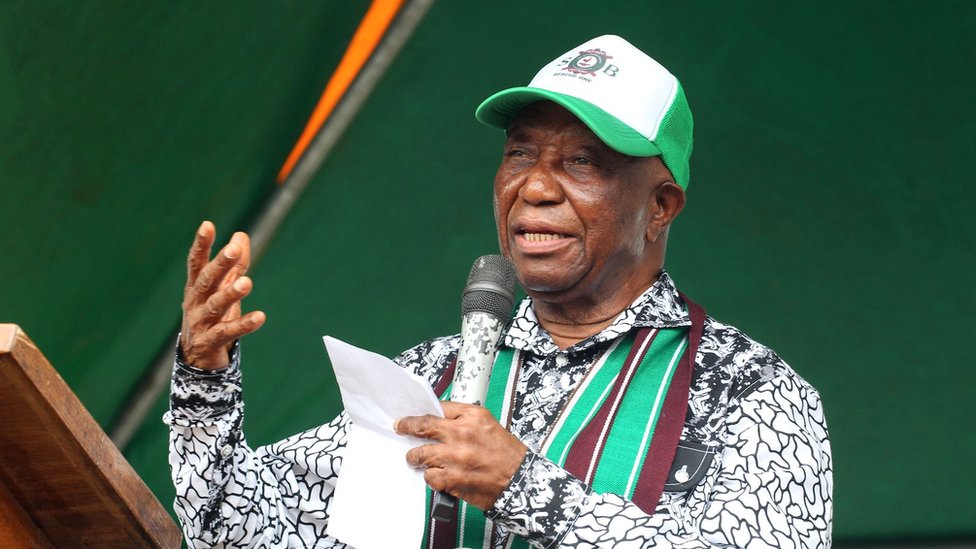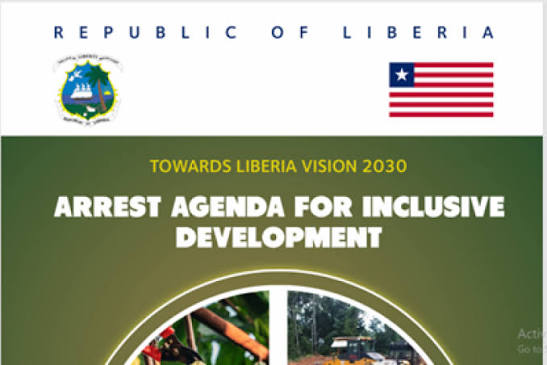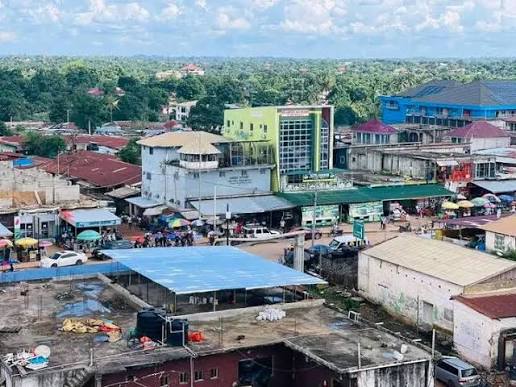Rebuilding Liberia: The Postwar Infrastructure Conference That Could Redefine a Nation

The journey from Monrovia to Ganta is a story of dust and potholes– a journey that can consume hours, patience, and axles.
This is the destiny of a nation still carrying the deep scars of its civil conflicts, where bridges grow old under the strain of traffic and the power infrastructure coughs like a dying memory.
This is the setting for Liberia's groundbreaking first-ever Postwar National Conference on Infrastructure, an elite conference scheduled for December 8–12, 2025, in Ganta City, Nimba County.
This conference represents a historic, collective effort to finally lay the physical and systemic foundations for a stable, modern state. The stakes are huge: this event will be the ultimate test of Liberia's capacity to plan, finance, and deliver inclusive development for its citizens.
Why Liberia Needs a National Infrastructure Reset
The devastating civil wars of 1989–2003 did not just shatter lives; they shattered Liberia's underlying infrastructure. Roads became impassable arteries, the ports fell apart, basic housing disintegrated, and the power grid was in piecemeal, unreliable generators.
Two decades later, the country still bears the scars: chronic fuel shortages, agonizing urban congestion, and a deeply skewed development that isolates rural areas.
Past governments launched policies, but all too often they had been patchwork in nature, with stalled or half-completed projects as the result. The vision had not been cohesive.

The current government, led by President Joseph Boakai, is resolved to change that. His pledge is to create a consistent, actionable infrastructure vision, moving beyond temporary stop-gap measures to fashion enduring national assets.
What's Being Planned and Who's Involved
Between December 8–12, 2025, regional attention will be on Ganta City, Nimba County. The ambitious conference is being organized by the Ministry of Public Works and the Presidency itself, a testament to the gravity of the mission.
Over 200 local and international stakeholders are expected, including finance ministers, technical experts, development partners, and private investors.
The conference is organized around five major thematic focus areas:
Energy and Investment Infrastructure
Housing and Social Infrastructure
Spatial Planning for Rural Development
Transport, Rail, and Port Networks
Infrastructure Financing and Policy Reforms
Notably, this planning aligns with the government's ARREST Agenda (Agriculture, Roads, Rule of Law, Education, Sanitation, and Tourism) and the continent-wide vision of AU Agenda 2063, situating Liberia's rebirth within a broader pan-African development agenda.

Opportunity and Oversight
To Investors, the conference is a personal invitation, which can lead to a whole new wave of contracts, Public-Private Partnerships (PPPs), and regional development projects with long-term returns.
To Local Businesses, the promise is the opening up of larger, more technical projects and, above all, the generation of a great many jobs. But they must also be prepared to compete with experienced international firms drawn in by the same promise.
The conference presents CSOs with a critical forum. It is their chance to demand transparency, accountability, and equitable distribution of projects so the reconstruction benefits the interest of all 15 counties and not just the capital.
For the Government, it is its last credibility test. The conference is not for rhetoric but to determine whether the Boakai administration is able to move from the top-level commitments to tangible, concrete advances.
The Challenges Ahead
The road to successful implementation is fraught with pitfalls. The initial pitfall is Financing Gaps. Liberia's reliance on foreign aid and concessional loans means the country must make a strong, corruption-free case to access needed capital.
This leads to the critical pitfall of Governance Risks: corruption, accountability, and transparency in procurement remain top priorities that have the potential to undermine international support and domestic trust.
Moreover, Implementation Challenges in the form of delayed bureaucracy and a national poor maintenance culture threaten to undermine completed projects.
Finally, the Regional Equity promise must be realized. The infrastructural renaissance must go beyond Monrovia and Nimba County to actually connect and empower the entire nation.
Expert and Public Reactions
Government optimism is tempered elsewhere. The Ministry of Public Works has been bullish, framing the conference as a game-changer for economic activity.
Civil society organizations have been more cautious, pointing out that without iron-clad oversight mechanisms in place, this conference risks being "another round of talk" rather than a catalyst for "real change".
Investor interest is already evident, particularly in the prospect of new public-private frameworks that de-risk investment in high-impact sectors like energy and ports.
The current public discussion on local airwaves and social media is a jarring juxtaposition of hope and fatigue, a national longing for change finally crashing into the harsh reality of fulfillment.
The Road to December and Beyond

The choice of Ganta to host this conference is powerful symbolism– a nod toward rebuilding the nation not from the colonial capital but from the bottom up, the very heart of the nation's economic and political life.
This December, the question of utmost importance to Liberia isn't whether infrastructure will be rebuilt, but whether the nation can finally break the cycle of fragmented planning and corruption that has stymied progress for decades.
Success here would not merely mean asphalt roads; it would signal a profound shift in national confidence and establish the trend of growth for the next decade of Liberia's story. Infrastructure construction is confidence building.
Recommended Articles
Travel Alert: U.S. Visa Suspension Rattles Liberian Travelers

The U.S. has indefinitely paused immigrant visa processing for Liberia, affecting family reunifications and sparking anx...
Lagos Icon Opral Benson Declared Missing, Then Found in Liberia!

Initial reports declaring Opral Benson, the Iya Oge of Lagos, missing have been debunked. While her family initially iss...
Liberia Faces U.S. Visa Halt: Debate Reignites Over Sanctions

Jefferson T. Koijee, CDC Secretary General, has critiqued a new U.S. immigration policy that halts visa processing for L...
Liberia's Government Breaks Silence: US Visa Suspension for Citizens Clarified

Liberia's Ministry of Information has clarified that the U.S. has not banned all visas for Liberian citizens, but rather...
US Halts Immigrant Visa Processing for Liberia and 74 Nations, Sparks Regional Concern

Liberia's inclusion on a new U.S. immigrant visa suspension list has sparked intense national debate, revealing deep fru...
Liberian President Boakai Claims Ignorance on Controversial 'Presidential Villa' Launch

Liberian President Joseph Boakai has made a striking admission, revealing a major, highly secured construction project i...
You may also like...
Bundesliga's New Nigerian Star Shines: Ogundu's Explosive Augsburg Debut!

Nigerian players experienced a weekend of mixed results in the German Bundesliga's 23rd match day. Uchenna Ogundu enjoye...
Capello Unleashes Juventus' Secret Weapon Against Osimhen in UCL Showdown!

Juventus faces an uphill battle against Galatasaray in the UEFA Champions League Round of 16 second leg, needing to over...
Berlinale Shocker: 'Yellow Letters' Takes Golden Bear, 'AnyMart' Director Debuts!

The Berlin Film Festival honored
Shocking Trend: Sudan's 'Lion Cubs' – Child Soldiers Going Viral on TikTok

A joint investigation reveals that child soldiers, dubbed 'lion cubs,' have become viral sensations on TikTok and other ...
Gregory Maqoma's 'Genesis': A Powerful Artistic Call for Healing in South Africa

Gregory Maqoma's new dance-opera, "Genesis: The Beginning and End of Time," has premiered in Cape Town, offering a capti...
Massive Rivian 2026.03 Update Boosts R1 Performance and Utility!

Rivian's latest software update, 2026.03, brings substantial enhancements to its R1S SUV and R1T pickup, broadening perf...
Bitcoin's Dire 29% Drop: VanEck Signals Seller Exhaustion Amid Market Carnage!

Bitcoin has suffered a sharp 29% price drop, but a VanEck report suggests seller exhaustion and a potential market botto...
Crypto Titans Shake-Up: Ripple & Deutsche Bank Partner, XRP Dips, CZ's UAE Bitcoin Mining Role Revealed!

Deutsche Bank is set to adopt Ripple's technology for faster, cheaper cross-border payments, marking a significant insti...
